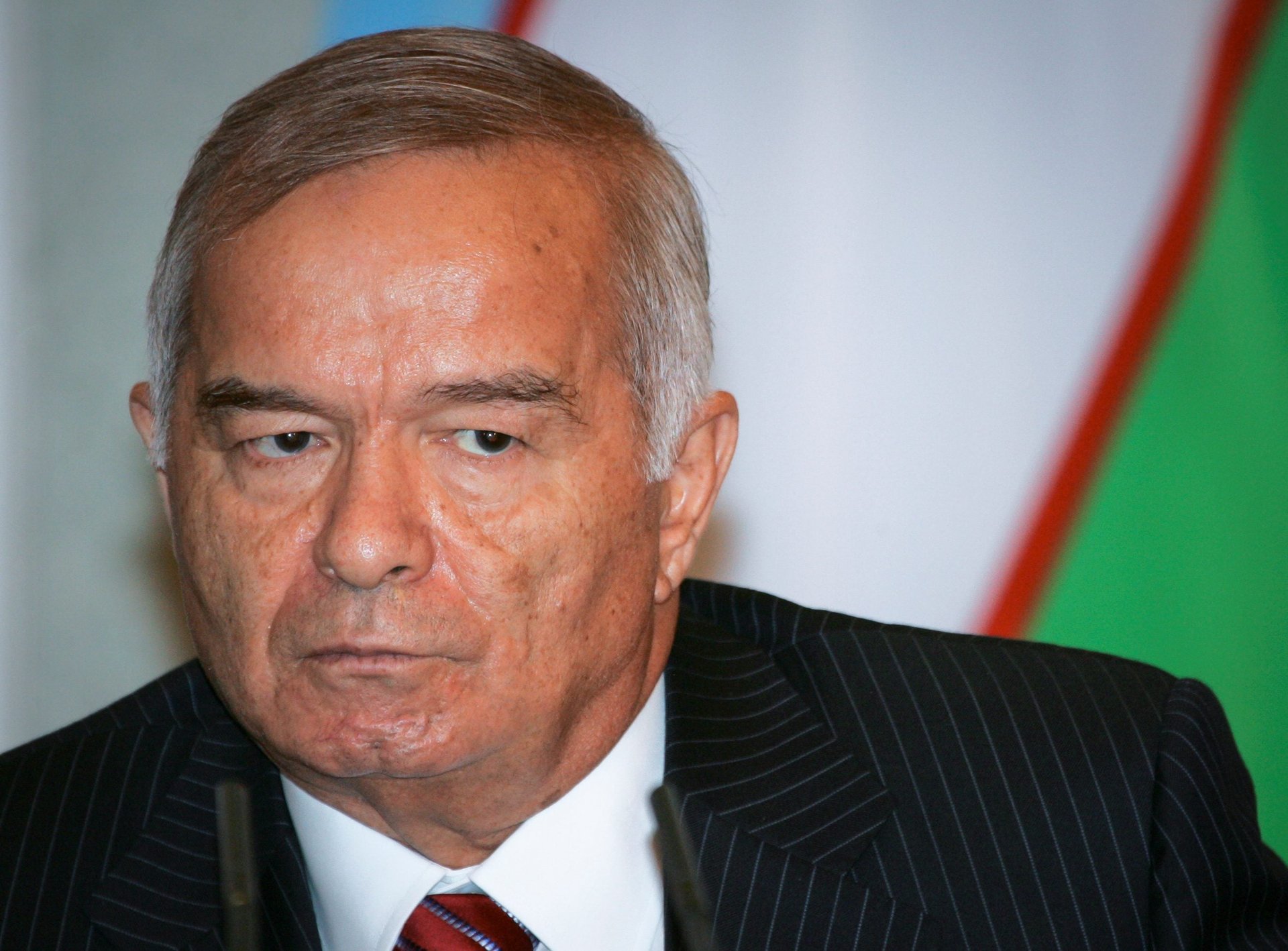One of the world’s most brutal tyrants has finally died
Three weeks after the Soviet Union broke up at the end of 1991, I could see fresh blood on the sidewalk outside the headquarters of the political opposition in central Tashkent. It summed up Islam Karimov’s subsequent 25 years as president of Uzbekistan.


Three weeks after the Soviet Union broke up at the end of 1991, I could see fresh blood on the sidewalk outside the headquarters of the political opposition in central Tashkent. It summed up Islam Karimov’s subsequent 25 years as president of Uzbekistan.
In a region of ruling toughs, Karimov out-toughed everyone.
The death of the 78-year-old Karimov—who rose through the Soviet-era Communist Party and became boss of Uzbekistan in 1989 before leading it as an independent nation after 1991—was announced today by Turkey, and whispered by diplomats.
A video emerged of his body arriving in Samarkand, his ancient hometown in the east near Tajikistan (above). Finally, six hours after the Turkish announcement, Uzbekistan state television reported that Karimov was dead. The silence from Uzbekistan was again a hallmark of a long rule based on suspicion, fear, and reclusiveness. Who will replace Karimov? Again, a mystery—he brooked no opposition, and appeared to designate no successor.
In the years after he came to power, Karimov showed some redeeming qualities. Unlike weaker-minded neighbors, he stood up to the great powers—the US and Russia—when he perceived unfair treatment, usually keeping one on side while telling off the other, and swapping partners when he saw fit. And, while other former Soviet economies crashed, Uzbekistan’s declined much more slowly.
Karimov, meanwhile, masterfully courted Western diplomats and visiting dignitaries, many of whom seemed to see in him a latter-day Khan from the Great Game, the infamous Central Asian rivalry between Russia and Great Britain, played out during the 19th and early 20th centuries.
From the start, US military leaders appeared to adore him. In hour-long monologues, Karimov would make the dignitary before him think he or she uniquely understood him and the true stakes involved, how wonderful that was after all these awful years of miscues, and what a wonderful relationship was ahead of them. Bitter recriminations almost always followed when the given official’s term was up, and the hopes inevitably dashed.
And then there was that blood on the sidewalk, in a puddle outside the offices of Birlik, the Uzbek opposition party, in January 1992.
Abdurahim Pulatov, Birlik’s leader, had just arrived by car and was about to mount the stairs when he was struck on the head with an iron bar by someone who came out of nowhere. After telling me that Pulatov was rushed to the hospital, his brother went on with a straight-forward discussion of Uzbek politics. For him, it was clearly just another day.
Pulatov survived, although both brothers—along with almost all the rest of the country’s independent and opposition activists and journalists—soon fled the country. I myself was expelled two years later.
Over the coming years, reports of violence were steady. Uzbek authorities had extracted a prisoner’s fingernails and boiled him alive. In 2005, they slaughtered hundreds of protesters in the city of Andijan.
Throughout, some Western analysts sought narrative rationale for Karimov’s excesses: the 9/11 attacks vindicated his crackdown on Islamic piety; the instability and disfunction in neighboring countries informed his command economics; although brutish, he was unavoidable as a partner because of Uzbekistan’s strategic location.
Though a full-throated critic of Karimov’s at times, the US ended up compromising itself when it used Uzbekistan as one of its primary secret sites for the rendition of prisoners taken after 9/11. As CIA agents watched, Uzbek authorities tortured these US prisoners. In other words, the US became complicit with Karimov.
In the end, there are no excuses. Karimov started out brutal, and went on being that way. When 9/11 happened, he embraced it as justification for the past, and for worse to come. He was tough not because of foresight, but because he was standard-issue Soviet-trained paranoid autocrat.
Unfortunately, we do not know if Uzbekistan will have better to come.
This story has been updated